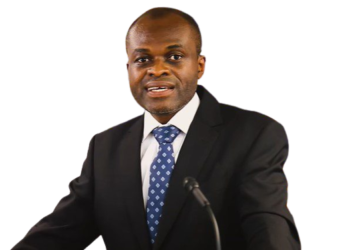The Founder and Leader of the Prophetic Hill Church, Prophet Nigel Gaisie, has defended the significance of 31st December prophecies, insisting that they are not man-made but divinely inspired messages from God.
Addressing the public debate about the yearly prophetic messages which frequently draws criticism for predicting tragedy and bad luck, Prophet Nigel Gaisie said “on 31st night prophecies, for those who would speak, they spoke the mind of God.”
The prophet emphasised that the recipient’s interpretation of prophetic messages is often subjective.
“God speaks to us daily, even right now, God speaks to us. We are not the manufacturers of prophecies. To you, what you may call negative, to another may not be negative. It relatively depends on who, again, is receiving it.”
Nigel Gaisie
He further explained why prophecies on December 31st frequently garner public attention.
“The 31st is when the major cameras come into the churches. We prophesy every day, but it’s just that on the 31st night, the cameras come into the various churches and they balloon or blow it up, that is why.”
Nigel Gaisie
However, the General Overseer of the Prophetic Hill Church described controversy as an inevitable part of his prophetic ministry, likening it to an occupational hazard.

The outspoken man of God opened up about how he handles public backlash and criticism, particularly surrounding his prophecies and public appearances.
“How do I handle controversies? Well, from the word go, just as they didn’t love Jesus, I know very well that those whom I haven’t been called to will also not love me. I call it an occupational hazard. I am a leader of a great church.”
Nigel Gaisie
According to the prophet, not everyone is meant to receive his message, and that often leads to misunderstanding and criticism. “I haven’t been called to everybody, but to those that I have been called to, what you call controversy may not be controversy to them,” he noted.
He further explained that controversy is part and parcel of the prophetic calling.
“You cannot be a prophet, and there will not be controversy. To one, what you are saying is good, but to another, it might not be good. So, the one that it may not be good to, the person may react or fire back.”
Nigel Gaisie
Nigel Gaisie on Calling Ghana ‘Umuofia’

The Founder and Leader of the Prophetic Hill Church clarified that his controversial reference to the so-called “Republic of Umuofia” during previous 31st December Watch Night services was a coded way of speaking about Ghana.
The outspoken cleric explained that he adopted the fictional name in response to a directive from the Ghana Police Service under the previous New Patriotic Party (NPP) administration, which barred prophets from publicly declaring doom prophecies, especially during the highly anticipated Watch Night services.
At the time, Prophet Gaisie described his prophetic revelations as relating to the “Republic of Umuofia,” a term borrowed from Chinua Achebe’s classic novel ‘Things Fall Apart’, a move many interpreted as an attempt to sidestep police scrutiny while still delivering his message.
Now, the prophet has openly admitted that “Umuofia” was simply a veiled reference to Ghana.
“Ghana is Umuofia. I am a prophet of God, and when you meet a leadership that is like Herod, I am not John the Baptist; you have to walk in wisdom. The Bible admonishes us to walk in wisdom. The intent and the purpose of the message were carried, and that is all I wanted to put across.”
Nigel Gaisie
Prophet Gaisie’s statement highlights the tension between religious freedom and public order, as well as the creative ways some pastors have responded to state restrictions on prophetic declarations.
The Ghana Police Service had previously warned against doom prophecies during New Year’s Eve services, prompting Nigel Gaisie to use the fictional “Republic of Umuofia” as a veil for his messages.
READ ALSO: Private Consumption to Fuel 3.2% of Ghana’s GDP Growth in 2025


















